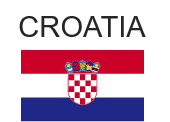
National Interoperability Framework
The National Interoperability Framework (NIF) is a set of standards, policies, and guidelines that ensure that information and communication technology (ICT) systems can communicate and share data seamlessly. It promotes the development of interoperable systems that facilitate data exchange and collaboration between different organizations and levels of government. The NIF provides a common language and a framework for ensuring that ICT solutions are compatible, secure, and reliable, which enhances the efficiency of public services and improves citizen outcomes.
Good Practices
This section provides examples at the national level in line with a selection of different thematic areas of the European Interoperability Framework (EIF). Further initiatives and good practices are available in the country’s Digital Public Administration Factsheet.
In order to modernise, simplify, and speed up communication between citizens and the public administrations, as well as increase the transparency of the public sector in providing public services, the eCitizens platform has been created. The e-Citizens system consists of the following elements: the Central Government Portal, which is the public part of the system; the Personal User Mailbox; and the National Identification and Authentication System. Horizontal components there can also be found, including eSignature, eFees, and eStamp.
The Croatian Personal Data Protection Agency is managing a range of activities, such as educational sessions and events that have the aim to raise and strengthen public awareness on the importance of personal data and privacy protection. Thus, there have been several educational campaigns for data controllers and personal data protection officials. The Agency is carrying out administrative and professional tasks regarding personal data protection. In the framework of public tasks, the Agency supervises the implementation of personal data protection, indicates the violations noticed during personal data collecting, compiles a list of countries and international organisations that have adequately regulated personal data protection, and resolves requests to determine possible violations of rights. Moreover, the security of data exchange will be strengthen thanks to the implementation of a central interoperability system developed by the Agency.
In Croatia, the e-Service standardisation project is currently being implemented in order to;
- develop new e-Services;
- improve the existing and continuous digitisation of public administration operations, and:
- increase the share of e-Service users.
The project will establish an appropriate information system that will support all processes and forms defined as part of the national e-Standard for development of public e-Services, which already contains references to international standards/specifications [e.g., reference to WCAG (Web Content Accessibility Guidelines)]. Moreover, a portal with all essential information on the development of e-Services will be established and standardised user interfaces (graphic design) will be developed as building blocks for the development of e-Services, rules and guidelines. Life situations will be analysed and their registry will be created, and based on them, the priorities of the needs of citizens and business entities in the improvement or creation of new e-Services will be defined.

